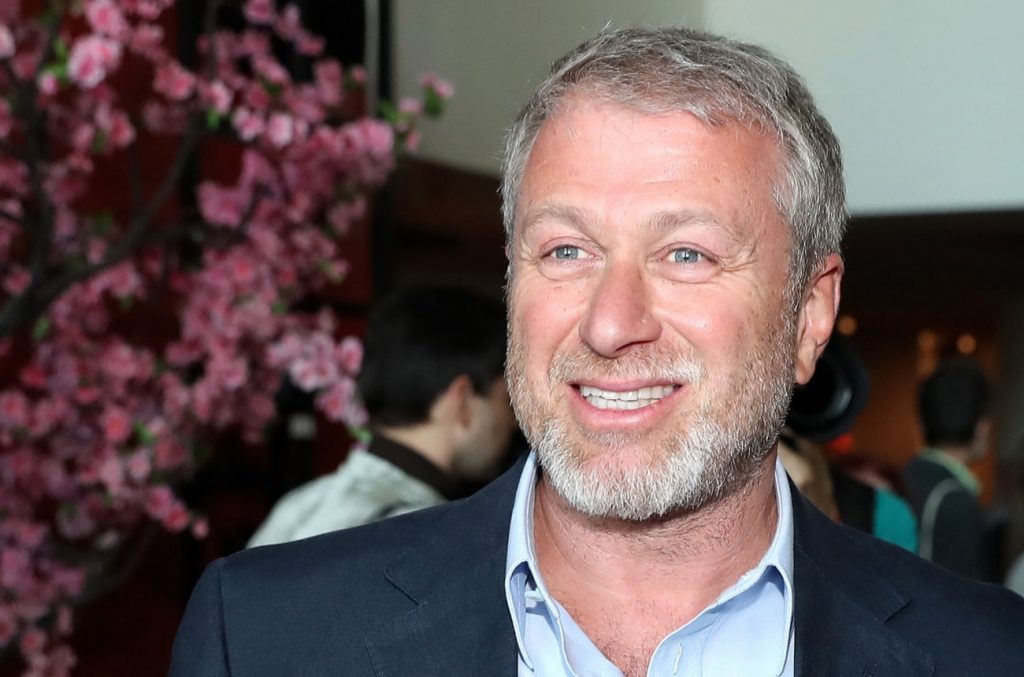
Proceeds from the sale of Chelsea FC are embroiled in a property rights quagmire.
LONDON — More than £2 billion was promised to Ukrainian war victims thanks to the forced sale of Chelsea Football Club.
It was to be the largest nongovernmental aid package Europe had ever seen, but nearly two years on and not a penny from the record-breaking sale has been given to a single victim of the conflict.
Instead, the money sits idle in a frozen London bank account, unable to be touched by the British government or the club’s previous owner — Russian oligarch Roman Abramovich.
At issue is how to get the money moving without ripping apart centuries worth of legal precedent that enshrines the Western capitalist principle that forfeiture of property before conviction is illegal.
As yet, Abramovich has not been charged with any criminal action despite being formally sanctioned in March 2022 for allegedly benefiting from his close ties to Russian President Vladimir Putin and for contributing to the Kremlin’s war chest.
That means if politicians are to preserve Britain’s reputation for upholding property rights and as an attractive destination for international investment they need the billionaire’s consent to move the money. But this poses a conundrum for British authorities.
Abramovich is demanding that some of the funds flow to Russian victims as well as Ukrainian ones, yet the optics of making concessions to a Russian billionaire are far from palatable to authorities. Hence the stasis.
Semantic loopholes
Ministers said in May 2022 that the “net proceeds” of the £4.2 billion paid by American billionaire Todd Boehly and his partners to buy Chelsea would be given to an independently run foundation to distribute to victims. This is an estimated £2.5 billion.
But the failure to specify what constitutes a victim has provided Abramovich with a loophole to argue that victims of the war who live in Moscow-controlled Eastern Ukraine or even those who have been displaced to other neighboring countries, including Russia itself, should be included among potential beneficiaries.
The semantic wrangling has been taking a toll on those charged with overseeing the foundation, among them Mike Penrose, the former UNICEF UK director appointed by the government in 2022 to oversee the foundation.
In a bid to break the impasse, Penrose and his foundation had begun to consider a third option: using the Chelsea sale money on projects outside of Ukraine to help refugees from the war — including U.K. households that have taken in fleeing Ukrainians.
In the eyes of NGO workers, the solution made sense because the war had impeded Ukraine’s ability to export grains to developing countries, increasing the price of food in some of the world’s poorest countries.
“The prospect of famine in Eastern Africa is all a part of this story,” James Denselow, head of conflict and humanitarian policy at Save the Children U.K., told POLITICO.
But Penrose has since lost confidence that the U.K., EU and Abramovich can ever cut a deal. An aid worker connected to the foundation, who spoke to POLITICO on condition of anonymity due to fear of reprisals, said Penrose was growing increasingly frustrated over the belief that the differences had become intractable and that the funds might be frozen indefinitely.
“The government is worried about political exposure when it comes to exactly where it goes and who it goes to — it seems to be all risk and no reward,” the aid worker said. “There’s been no price to pay for sitting on the fund so far.”
When contacted by POLITICO, Penrose’s office said he was abroad.
Fall of the Roman empire
Abramovich, who made his billions from acquiring former state assets cheaply in the chaotic decade following the Soviet Union’s collapse, was arguably the most high-profile Russian billionaire to make London his personal playground during the 2000s and 2010s.
During that period, he took Chelsea Football Club from a high-profile but rarely successful team to one of the richest and most powerful sporting institutions in Europe.
Abramovich, in turn, became beloved by Chelsea fans for bringing them seldom-experienced glory and for creating the so-called Roman Empire.
That all collapsed when Putin launched his all-out invasion of Ukraine in February 2022 and Abramovich’s connections with the Russian regime fell under much harsher scrutiny.
In an attempt to keep sanctions at bay and protect the club’s operating status Abramovich announced in early March 2022 he would sell Chelsea outright.
But the strategy failed to quell a critical backlash from anti-Kremlin campaigners and MPs from across the political divide. On March 10, former U.K. Prime Minister Boris Johnson, whose government had initially been reluctant to freeze Abramovich’s assets, buckled to the pressure and announced targeted sanctions would be implemented. Johnson added the government would from now on “be ruthless in pursuing those who enable the killing of civilians, destruction of hospitals and illegal occupation of sovereign allies.”
